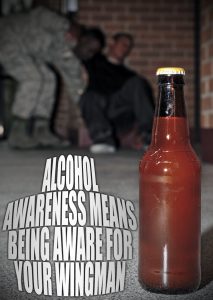Any kind of substance abuse makes us addicted because we like how it feels when we consume it. The moment you make up your mind to not have it anymore, your body with crave for it and that leads to uncalled for bodily symptoms. Here, we will discuss alcohol withdrawal symptoms and how you can cope up with it.
If you or someone you know is struggling with alcohol withdrawal symptoms, understanding the 12 Principles of AA can provide valuable guidance and support during this challenging time. Explore these principles to gain insight into the foundational beliefs that can aid in the journey to recovery.
If you suddenly stop drinking alcohol after having it excessively for a long time, it will show an effect on your body. Your condition might be mild to severe, depending on how much you drink and how well your body can control. Severe alcohol withdrawal symptoms can be very serious and, in some cases, fatal. With time, alcohol withdrawal symptoms tend to become worse. So, you need to know when and how to seek help.
The likeliness of having severe alcohol withdrawal symptoms tend to show up between two to five days since you stop drinking. So, the first day or two will not be good enough to explain how risky your condition is.
Table of Contents
Moderate and excessive alcoholism
Centers for Disease Control and Prevention states that moderate drinking is having one glass per day for females and two glasses for men. People over 21 years of age are considered safe from moderate drinking. To define one drink, we mean:
- 12-ounce beer
- 8-ounce malt liquor
- 5-ounce wine
- 5-ounce of gin, rum, whiskey, and vodka
According to the CDC, excessive drinking can be defined as heavy drinking or drinking by people less than the age of 21 or a pregnant woman drinking. Binge drinking is also a part of excessive drinking, where a person consumes multiple drinks at one night.
Heavy drinking is around four for women and five more men. Once they cross that line, they have drunk excessively. In a week, if women drink more than eight drinks and men drink more than 15 drinks, it is considered heavy. Depending on what type of alcohol someone consumes, their drink can trigger an alcohol disorder.

How does alcohol withdrawal work?
If you?re a heavy drinker, you are likely to face some alcohol withdrawal symptoms when you try to quit. Most people consume alcohol to relax and relieve stress, and alcohol caters to this by an increasing effect of GABA. GABA is a neurotransmitter that creates emotions of calmness and euphoria in people. In also reduces glutamate, which is another neurotransmitter, responsible to create excitability.
When you drink heavily, the amount of GABA increases slowly, while glutamate decreases slowly. In order to make that work, people want to have more alcohol to satisfy themselves. Slowly, your body gets used to such changes and responds by producing more glutamate and lesser amounts of GABA.
Now, when people stop drinking all of a sudden, their body does not suppress these neurotransmitters. However, it still goes on producing glutamate and decreases GABA. This results in feelings of hyper-excitement, restlessness, anxiety, shakiness, and more. People who drink heavily can be severe and face conditions like tremors, high blood pressure, seizures, and so on.
Common Alcohol Withdrawal Symptoms
If you have been drinking excessively but you stop all of a sudden, you might experience alcohol withdrawal symptoms. Your past alcohol use will determine the symptoms and how it ranges from being mild to uncomfortable to serious. In some cases, it can be life-threatening and fatal.
A heavy drinker will start having effects of alcohol withdrawal right from eight hours of drinking the last time. But in some cases, it can go up to several days. The symptoms tend to show up around one to three days from your last drink. The milder ones can persist for weeks or months for some people. But they?re probably occasional drinkers. Check out the common symptoms of alcohol withdrawal:
- Anxiousness
- Nervousness
- Irritation
- Depression
- Tiredness
- Shaky
- Mood swings
- Not thinking clearly
- Nightmares
- Sweat
- Dilated pupils
- Headache
- Sleeping difficulty
- Vomiting and nausea
- Quick heart rate
- Loss of appetite
- Tremor
- Pale skin
Severe alcohol withdrawal symptoms
One of the severe conditions that can happen due to overuse of alcohol is called delirium tremens (DTs). Around 3% to 5% of people who leave drinking after having it heavily for a long time, can face this condition. It is a fatal condition that can create havoc if left untreated. If you know someone who needs immediate medical attention due to alcohol withdrawal, he needs to be taken to the emergency. Symptoms of DTs include:
- Seizures
- Fever
- Confusion
- Agitation
- Hallucination
- High blood pressure
Health clinics and detox are familiar with such symptoms. They will have the right tools to offer the best treatment for the person facing this condition.

Diagnosis of alcohol withdrawal
Even though alcoholism is evident and so is a sudden quest to leave, it is a medical condition that needs to be diagnosed. You have to go through a proper physical examination that exhibits the toxicology screen. It shows how much alcohol is present in your urine and blood. The doctor will check the symptoms and physical signs that are usually like:
- Faster heartbeat
- Tremors in the hands
- Dilated pupils
- High blood pressure
- Fast breathing
- Fever
Your doctor might use a scale to analyze how severe your symptoms and conditions are. The scale will use 10 questions to measure conditions like:
- Tremors
- Vomiting
- Nausea
- Anxiety
- Sweat
- Agitation
- Confusion
- Headache
- Tactile disturbance, which are abnormal feeling under your skin
- Visual disturbance like hallucinations and blurry vision
- Auditory disturbance like hearing
Treatment of alcohol withdrawal
The treatment you go through will determine how severe your condition is. Check out the different kinds of treatments you might be suggested to go through:
1. Treatment for mild or moderate symptoms
If there are mild or moderate alcohol withdrawal symptoms, you can recuperate with home care. Of course, you will need someone to stay with you all the time to make sure that the symptoms are not worse. Also, the urge to getting back to alcohol is high at this time. So, the person who stays with you needs to monitor your actions so that you don?t relapse. You might have to see a doctor every day, just to make sure that you?re stable.
You might consume sedatives like Valium, Ativan, Klonopin, or Xanax to get through symptoms of withdrawal. Your doctor might ask you to take a few physical tests in order to detect medical problems related to alcoholism. The most common test prescribed is a blood test. The doctor might also ask you to take counseling because of your alcohol use.
2. Treatment for moderate to severe symptoms
When symptoms are more on the severe side, you might need hospital care for close monitoring. The signs and symptoms will be on check and so will the blood and chemical levels. You might need intravenous fluids so that your body doesn?t dehydrate. Your doctor might also give you IV because you need to take sedatives to reduce symptoms like seizures and complications.
3. Long-term treatment
Irrespective of how mild or severe your alcohol withdrawal symptoms are, the best treatment is when you stop drinking completely. You need to make sure that the environment you live in helps you do that and you refrain from alcohol usage. For example, if you have people around you who also drinks, you will not only be exposed to alcohol but also get encouragement to drink. If home treatment isn?t possible for you, it is best to speak to your doctor and ask him if you should get admitted elsewhere.
Millions of people have recovered from alcoholism and alcohol withdrawal symptoms with time. While some experience disruptive symptoms for several months like insomnia, mood swings, fatigue, and more, it stabilizes with time. There is a low percentage of people who die from delirium tremens.
If you have an underlying medical condition and you continue drinking heavily, you might damage your organs. The recovery from such a point might not be easy too. Diseases like heart problems, liver condition, and nervous system issues can all be caused by heavy drinking. If you are currently into heavy drinking and want to quit, you need immediate medical attention.

Can you predict withdrawal symptoms?
If you?re trying to quit alcohol right now, you might be wondering how severe the withdrawal symptoms might be like. To determine this, you have to consider factors like age, gender, size, drinking habit, genes, and more. People, who drink mildly will not be as affected as someone who is into alcohol all the time. If you know your body, control, limitations, you might make some assumptions. But you cannot possibly analyze how bad it might get, so you do need to speak to a doctor to get a better idea.
Best food to recover from alcohol withdrawal
Trying to leave alcohol is a lifestyle change, so you have to consider many things that come along. For example, sleeping well, eating well, keeping yourself hydrated, exercising, are some of the things that can help you get better and stronger. Here, we will add some types of food that you must add to your diet while coping up with withdrawal symptoms:
1. Green veggies
This is a no brainer ? you need a lot of green veggies to keep yourself healthy and fit. Green vegetables are your best friend when you?re trying to detox. Vegetables have lots of minerals and vitamins that help you recover. People who drink gradually lose out on several nutrients.
Dark green vegetables come with a lot of health benefits. Add spinach, kale, lettuce, collard, to your diet. These include lots of beta carotene, folic acid, vitamin B, and calcium. It is easy to metabolize vegetables and that keeps you full and provides instant energy. Fibers also help your regular digestion.
2. Fruit
Fruits offer many similar benefits as vegetables do. They take you through a recovery diet, including quick digestion and have lots of nutrition due to vitamin C and antioxidant content. Alcohol withdrawal might make you crave for sweet things. Fruits can curb such that craving and keep you away from candies and doughnuts.
Grab fruits to satisfy your sugar cravings and also add healthy carbs. The best ones are apples and guavas. You can also have bananas and grapes. Fruits help you flush out toxins and heal your damaged body.
3. Lean Protein Sources
Both vegetables and fruits are amazing sources of carbs. However, you do need protein content as well. Protein helps you fix damaged cells, and that?s why you must add it to a recovery diet. Try to not have red meat, fatty meat, and stick to chicken breasts or turkey instead. If you are vegetarian, you can have beans, lentils, and tofu. These give you omega-3, iron, B6, and more. (medsmarter.com) Protein helps you improve your mood and energy ? both of these are necessary for recovery.
4. Cayenne Pepper
When you try to detox from alcohol, your appetite might get suppressed. So, adding food like cayenne can increase appetite and make you eat more healthy food. According to Dr. Elson Haas, cayenne can reduce alcohol craving and withdrawal symptoms like pain and nausea.
5. Vitamin B
Many alcoholics do not have vitamin B in their bodies. In order to replenish what you lost; you have to add food that has vitamin B. Some of the great sources of this nutrient is:
- Broccoli
- Lettuce
- Asparagus
- Salmon
- Cantaloupe
- Papaya
Final thoughts
When trying to recover from alcohol withdrawal, you will face several symptoms that you will not like to feel. This is why eating healthy and other lifestyle changes are crucial. These will give you energy and a positive impact mentally.
Go slow but make sure at no point you resort to having alcohol again. Take measures to detoxify yourself and eat as good as you can. Start exercising, meditating, and sleeping for at least seven to eight hours a day. These tiny steps will make a huge difference and help you get better and stronger.
These were some of the effective ways to get over alcohol symptoms. You need to slowly and steadily let your body go through changes, and within a year you can expect positive results.

